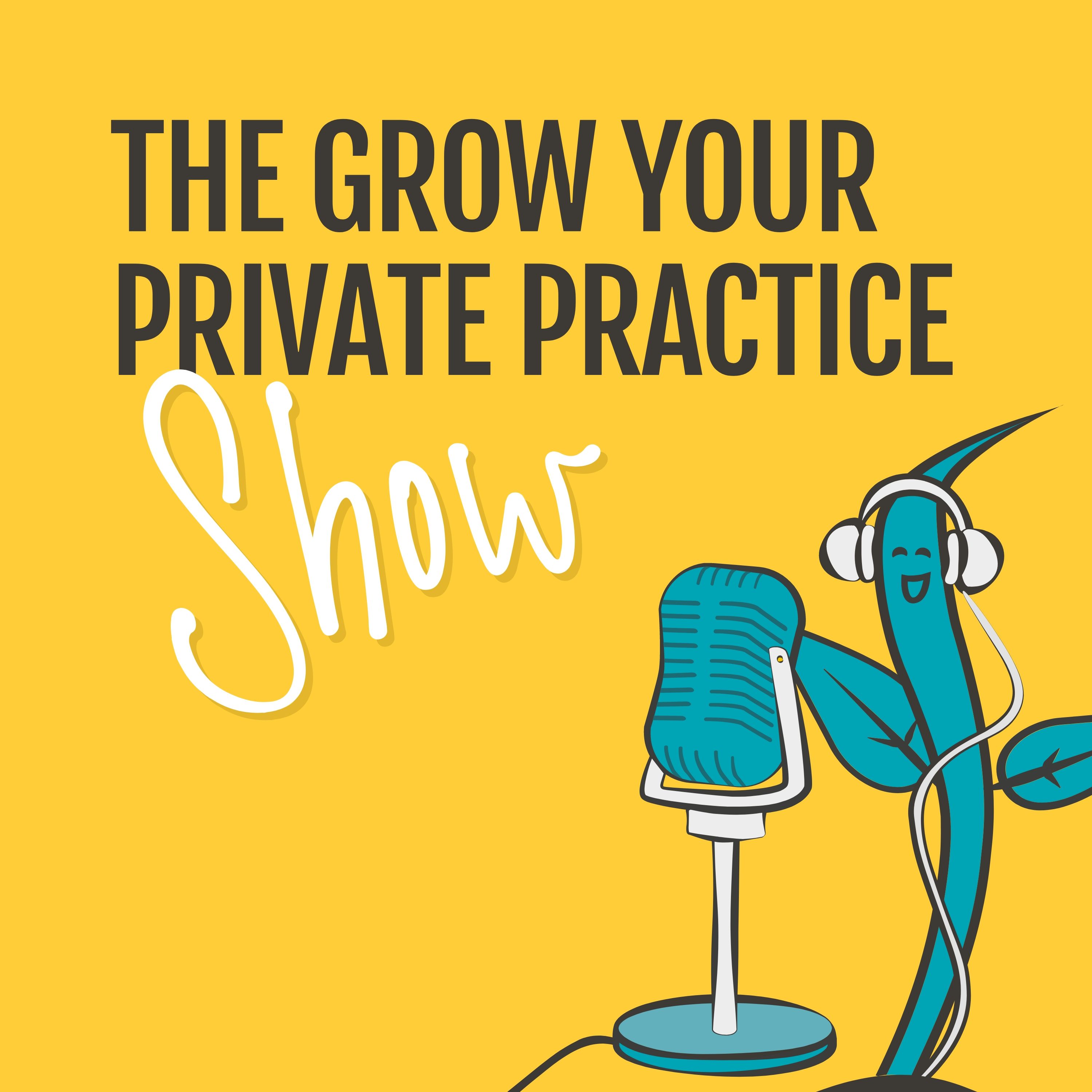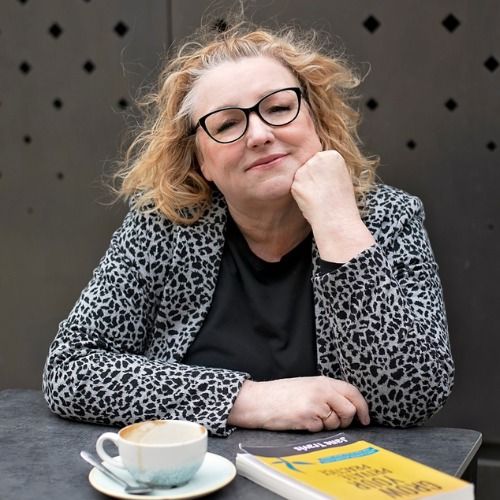The Value of Therapy: How Words Impact Your Attitude Towards Charging Clients
How do you feel about charging your therapy clients, raising fees or even enforcing boundaries about payment for missed sessions?
I think for many therapists, dealing with the money side of having clients can feel tricky - and I know it was for me.
So if that sounds familiar to you, listen up because in this episode I’m going to share a ridiculously simple change that transformed how I feel about charging clients.
Check out my FREE resources HERE
If you found this episode helpful, remember to subscribe and leave a review. A cheeky 5 stars would be amazing, thank you
Transcript
How do you feel about charging your therapy clients, raising fees or even enforcing boundaries about payment for missed sessions?
The money side of running a private practice has many therapists feeling uncomfortable and awkward - I know it was for me.
So if that sounds familiar, listen up because in this blog I’m going to share a ridiculously simple change that transformed how I feel about charging clients.
I love words: I love a well-written book with it's intricate descriptions that, paint pictures of characters and scenery and emotions.
In fact, when I was at school, English was my favourite subject.
And now, my favourite marketing activity is blogging because it involves using words to convey a message in a fun, simple way - and it makes me feel good.
I love journaling too. When I was still a therapist, I used to give every new client a notebook and invited them to journal. There is something incredibly powerful about finding just the right word to accurately express your thoughts and feelings, isn't there?
Oh, and let’s not forget I wrote the Grow Your Private Practice book!
I still love learning about writing, and have a shelf full of blogging and copywriting books.
So yes, I love how powerful words are.
The impact of words in the therapy room
When I was seeing therapy clients, I was hugely aware of the words a client used in sessions. Maybe you're the same?
I'd notice if they said 'sorry' a lot, or talked about what they 'should' do, or 'try' to do, or 'need' to do, or tell me how they feel guilty or selfish if they want to meet one of their own needs.
For example, if a client talked about feeling guilty a lot, we'd explore this:
What does feeling guilty mean to you?
What is the actual definition?
Does doing something for yourself mean you are a bad person and have done something wrong?
What word cold you use instead?
Then, we'd explore alternative words. We could exchange 'guilt', which is admitting that you've done something wrong, for 'regret' or 'unfortunate'. For example:
'I feel guilty for not picking them up from the airport at 2 am'
VS
'It's unfortunate that I couldn't pick them up at 2 am'.
I’d invite clients to become aware of using whatever the offending word was over the week. And the really interesting thing is, once they became aware of it - something would change for them.
A small internal shift makes a big difference.
Maybe you do something similar with clients too? It’s interesting, right?
Words are important. Words are powerful.
Therapy isn't all about earth-shattering A-HA moments. Sometimes it's a culmination of these small changes in awareness over time that add up to make a real difference for clients.
This language will impact how you feel about charging clients.
Counselling is a 'helping profession'. We help people in need.
But it's the word 'help' that can cause us problems. After all, how can we charge people that are in need of help?
You wouldn't help an old person over the road and then hold out your hand expecting to be paid, would you?
And if I was struggling with a leaky tap and someone offered to help me with it, I’d be miffed if I received an invoice afterwards.
Help is given
Help is free
Help is given freely
Help is charitable
Help is given as a gift
I know so many counsellors and therapists that really struggle with charging clients, increasing their fee or enforcing boundaries for missed appointments.
And I get it! It feels uncomfortable, almost like you're taking advantage of people in distress.
You're not of course, you are a professional running a business. But if this is an issue for you, the power of words can help you change your mindset around money in your business.
What is therapy?
From the outside, the skills of the therapist aren't always immediately apparent: you sit with a client, possibly without even saying much.
Your skills aren't always obvious to the untrained eye, but what you do is intense. You practice active listening, which sounds easy but it really isn't:
You listen to what the client says
How they say it
Their notice their body language
You notice what isn't being said
You notice patterns
You use counselling skills - reflecting, questioning, paraphrasing, silence, challenging etc.
You listen to the complete message
And you do all that, focusing on the client completely for 50 - 60 minutes
How this impacts the therapist
Being a therapist is extremely hard work. Exhausting. Demanding.
Not only that, listening to stories of pain and cruelty every day has an impact on you.
This type of work can be emotionally depleting. The impact of your work can lead to vicarious trauma, which is the result of empathetic engagement with clients who were traumatised.
What you hear can cause you to have a negative world view, which can colour your life.
Therapists are at risk of burnout, anxiety and depression.
Which is why it’s so galling when people think we just chat over a cuppa!
How will the language you use change this?
Here is my super simple, clear, easy and effective solution:
In your marketing, change the word HELP to WORK.
So when someone asks what you do, instead of:
'I’m a therapist and I help people to feel better about themselves’,
Say
‘I’m a therapist and I work with people to feel better about themselves’
On your website, instead of saying:
‘I will help you to manage your anxiety’ (or whatever fits your niche),
Say
‘I will work with you to manage your anxiety'.
Or:
Let's work together to explore your thoughts and emotions
I will work with you to discover the root causes of your concerns.
By working with me, you will develop the skills and insights necessary to improve your relationships and overall well-being.
My goal is to work collaboratively with you to discover your unique needs and goals.
We will work together manage and reduce symptoms of anxiety and depression.
I will work with you to heal from the emotional pain which is holding you back to bring a brighter future.
And check your thesaurus for words you can use around help and work. - you could use assist, facilitate, boost, encourage, invite… get creative.
Action Step
So your action step for this episode is to check your social media bios, your websites, your directory entries, all your Call To Actions etc to change from saying help to work.
It probably won't take long, but it will make that subtle difference both for yourself and your potential clients
Conclusion
Today we looked at how changing 'help' to 'work' is a surprisingly small, subtle change that really packs a punch.
This simple change impacts how you feel about the work you do, making you feel more comfortable around charging a fee.
Because what you do is intense, hard work.
You have trained hard to do what you do, jumped through many hoops. And what you do now is change peoples lives - sometimes, you even save peoples lives.
It’s valuable, invaluable and sometimes priceless, important work.
The nature of the work you do can have a negative impact on you personally, so you deserve to be financially rewarded for the difficult work you do. You are a professional therapist.
You might love what you do, but it’s still work. And you deserve to be paid adequately
Ok, I shall stop ranting now. But I’d love you to try this and tell me if it made a difference.
Are issues around money making you undercharge, struggle with boundaries and feel guilty? Then get the Grow Your Private Practice book, where we have a comprehensive look at your money mindset along with ideas how to make a change.

